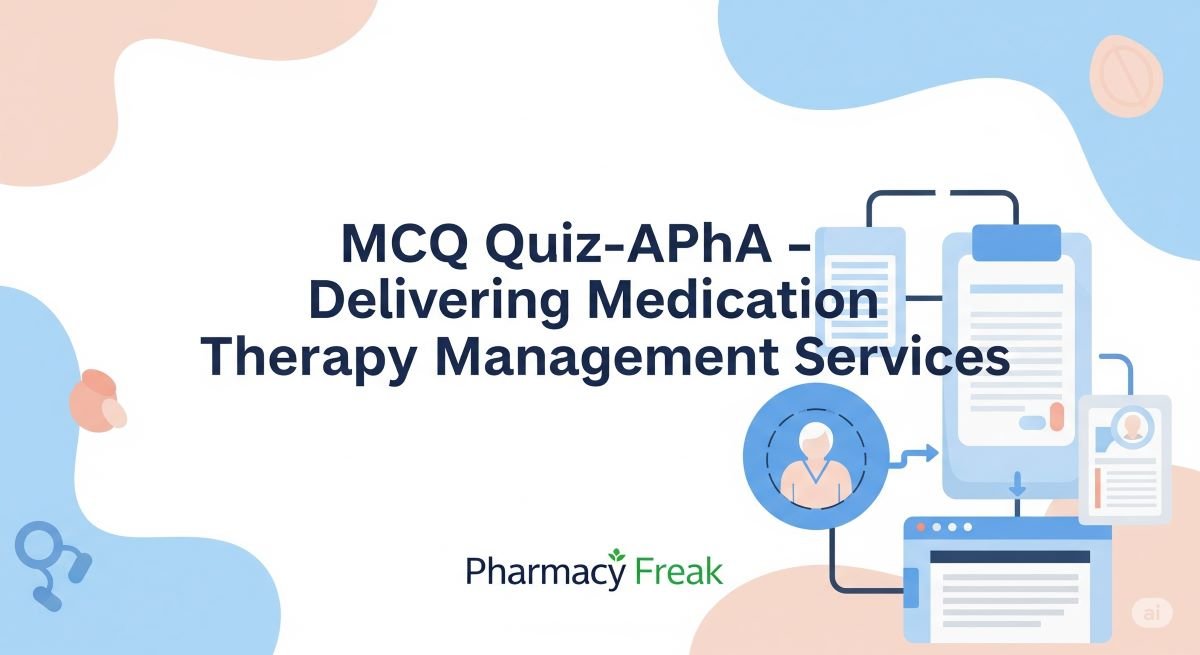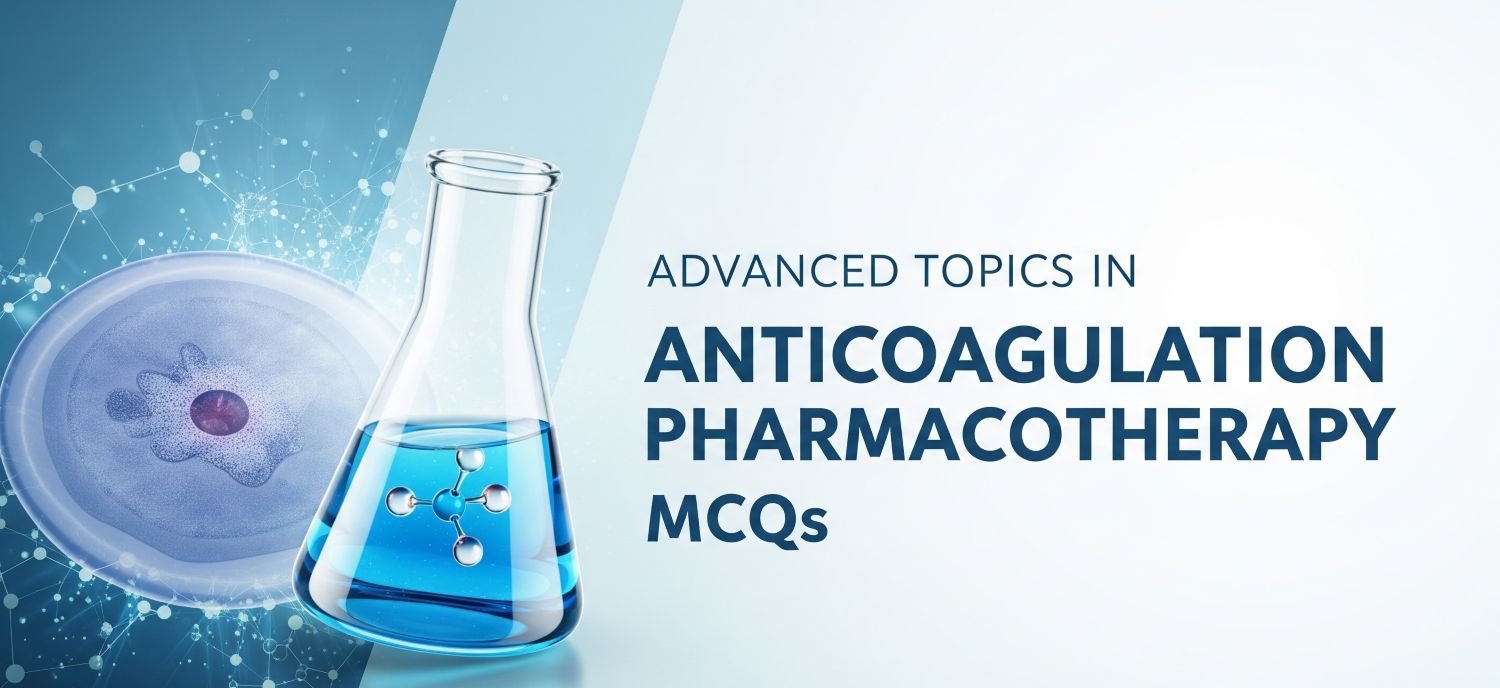

Master Advanced Anticoagulation Pharmacotherapy MCQs
Anticoagulation therapy is high-stakes and ever-evolving. Advanced MCQs in this area go beyond the basics—challenging you to individualize therapy, manage bleeding risks, and navigate the latest evidence for complex patients. This is your go-to guide for excelling on exams and in clinical practice.
What’s Covered in Advanced Anticoagulation Pharmacotherapy?
This topic explores the selection, monitoring, and adjustment of anticoagulant medications for challenging scenarios—like atrial fibrillation with multiple comorbidities, mechanical heart valves, cancer-associated thrombosis, and perioperative management. You’ll also cover drug-drug interactions, reversal strategies, and patient education.
What Will These MCQs Test?
Core Focus Areas
Anticoagulant Selection:
Expect questions comparing warfarin, DOACs (like apixaban, rivaroxaban, dabigatran), low-molecular-weight heparins, and heparin—focusing on patient-specific factors.Monitoring and Dose Adjustment:
MCQs may test INR interpretation, DOAC monitoring needs, renal/hepatic dose adjustment, and special considerations for elderly or high-risk patients.Managing Bleeding and Reversal:
You’ll see scenarios involving active bleeding, reversal agents (vitamin K, idarucizumab, andexanet alfa), and balancing clotting versus bleeding risks.Perioperative Management:
Questions may focus on bridging strategies, timing of holding and restarting anticoagulants, and risk assessment before procedures.Drug Interactions:
Expect to assess potential interactions with antibiotics, antiplatelets, CYP inducers/inhibitors, and herbal products.Patient Education:
Scenarios will include counseling patients on adherence, dietary considerations (especially for warfarin), recognizing signs of bleeding, and when to seek help.
Why These MCQs Matter
Here’s the truth: Anticoagulation is never one-size-fits-all. These MCQs prepare you to think critically, weigh risks and benefits, and individualize therapy—skills that save lives both in exams and the real world.
Tips for Success with Advanced Anticoagulation MCQs
1. Know Your Guidelines:
Base your choices on the latest evidence and recommendations for each patient type and clinical situation.
2. Prioritize Patient Safety:
When in doubt, focus on preventing life-threatening bleeds and clots—especially for vulnerable groups.
3. Think Through the Scenario:
Stepwise logic helps—assess risks, identify goals, and consider all relevant lab values or comorbidities.
4. Communicate Clearly:
Always choose patient counseling responses that are direct, clear, and actionable.
5. Watch for Red Flags:
Spot contraindications, interaction risks, or unusual lab results—and know when to escalate care.
Building Real-World Anticoagulation Expertise
Advanced Topics in Anticoagulation Pharmacotherapy MCQs are your training ground for high-stakes, complex patient care. Use each question to sharpen your clinical judgment, deepen your understanding, and boost your confidence in managing anticoagulant therapies safely.
